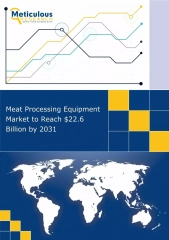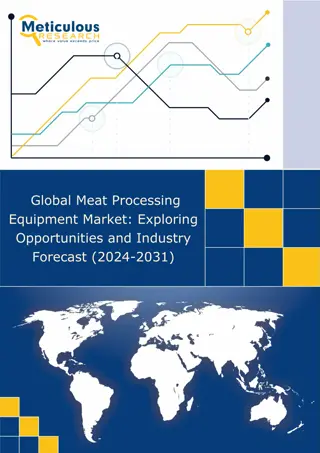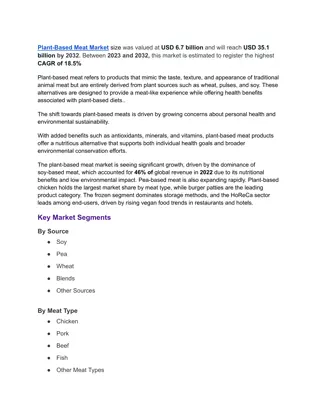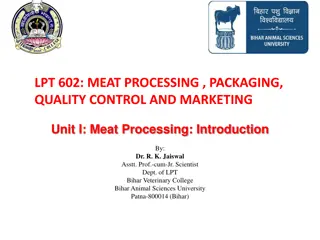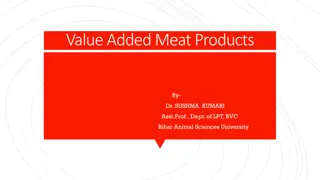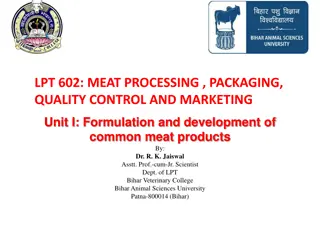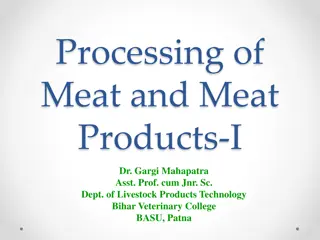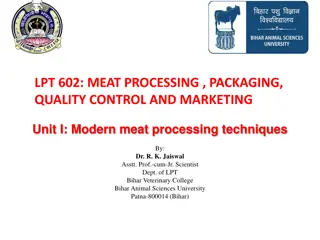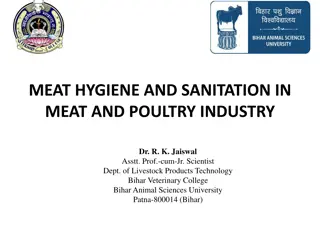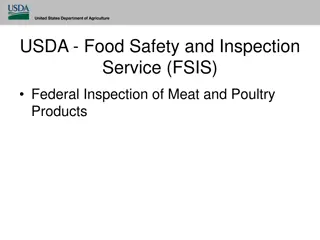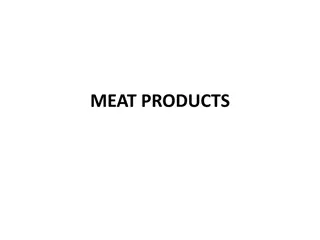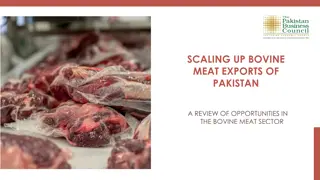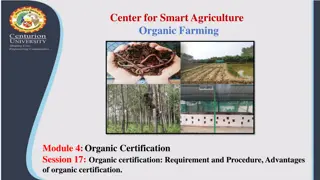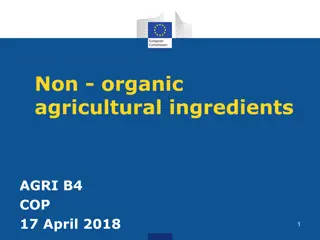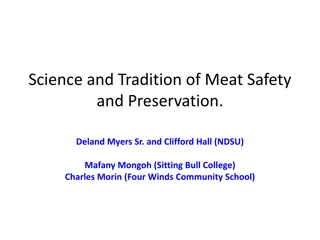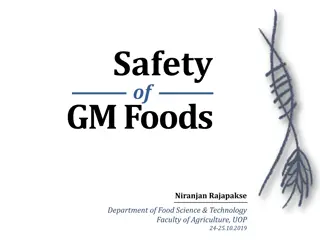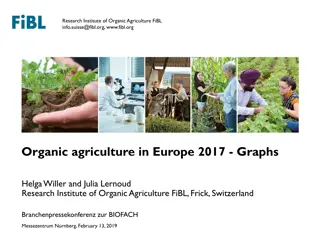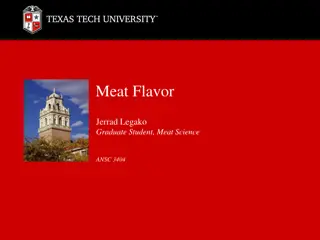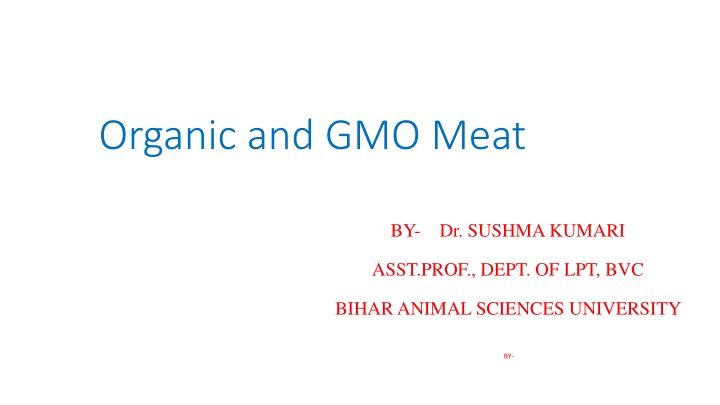
Organic Meat and GMO: Benefits and Differences
Explore the world of organic meat and genetically modified organisms (GMOs) with insights on their production methods, benefits, and impacts. Learn about the benefits of organic meat, GMO technology, and how they contribute to food production and sustainability.
Uploaded on | 0 Views
Download Presentation

Please find below an Image/Link to download the presentation.
The content on the website is provided AS IS for your information and personal use only. It may not be sold, licensed, or shared on other websites without obtaining consent from the author. If you encounter any issues during the download, it is possible that the publisher has removed the file from their server.
You are allowed to download the files provided on this website for personal or commercial use, subject to the condition that they are used lawfully. All files are the property of their respective owners.
The content on the website is provided AS IS for your information and personal use only. It may not be sold, licensed, or shared on other websites without obtaining consent from the author.
E N D
Presentation Transcript
Organic and GMO Meat BY- Dr. SUSHMA KUMARI ASST.PROF., DEPT. OF LPT, BVC BIHAR ANIMAL SCIENCES UNIVERSITY BY-
ORGANIC MEAT Organic meat means safe, free from any antibiotics and chemical residues. The products from organic animal husbandry are characterized by a specific organic production method governed by strict guidelines to be abided by at all stages of the production chain. Organic meat comes from certified organic farms whose guiding principle is to ensure the animal welfare. The life of organically reared animals should be as close as possible to their natural cycles and the livestock management should meet the physiological and ethological needs of the animals.
Animal feed needs to meet the requirements of the animal and foodstuff is from organic farming. However, grazing is the main source of food supply for organic farming. Organic meat products should be free from nitrites, preservatives commonly used in the processing of conventional meat products. organic farming, result in healthier and safer meat and high-quality processed meats.
GMO (Genetically Modified Organisms) Genetically whose genetic material has been artificially manipulated in a laboratory through genetic engineering. This creates combinations of plant, animal, bacteria, and virus genes that do not occur in nature or through traditional crossbreeding methods. modified organisms (GMOs) are living organisms Genetically modified (GM) foods are foods derived from organisms whose genetic material (DNA) has been modified in a way that does not occur naturally, e.g. through the introduction of a gene from a different organism. The technology is often called modern biotechnology or gene technology , sometimes also recombinant DNA technology or genetic engineering .
Benefits of GMO The possible benefits of genetic engineering include: More nutritious food. Tastier food. Disease- and drought-resistant plants that require fewer environmental resources (such as water and fertilizer) Less use of pesticides. Increased supply of food with reduced cost and longer shelf life. Faster growing plants and animals.
Disadvantages of GMO Genetic engineering could also create unknown side effects or outcomes. Certain changes in a plant or animal could cause unpredicted allergic reactions in some people which, in its original form, did not occur. Other changes could result into the toxicity of an organism to humans or other organisms. genetically modified The organisms (GMOs), is prohibited in organic products. This means an organic farmer can't plant GMO seeds, an organic cow can't eat GMO alfalfa or corn, and an organic soup producer can't use any GMO ingredients. use of genetic engineering, or

